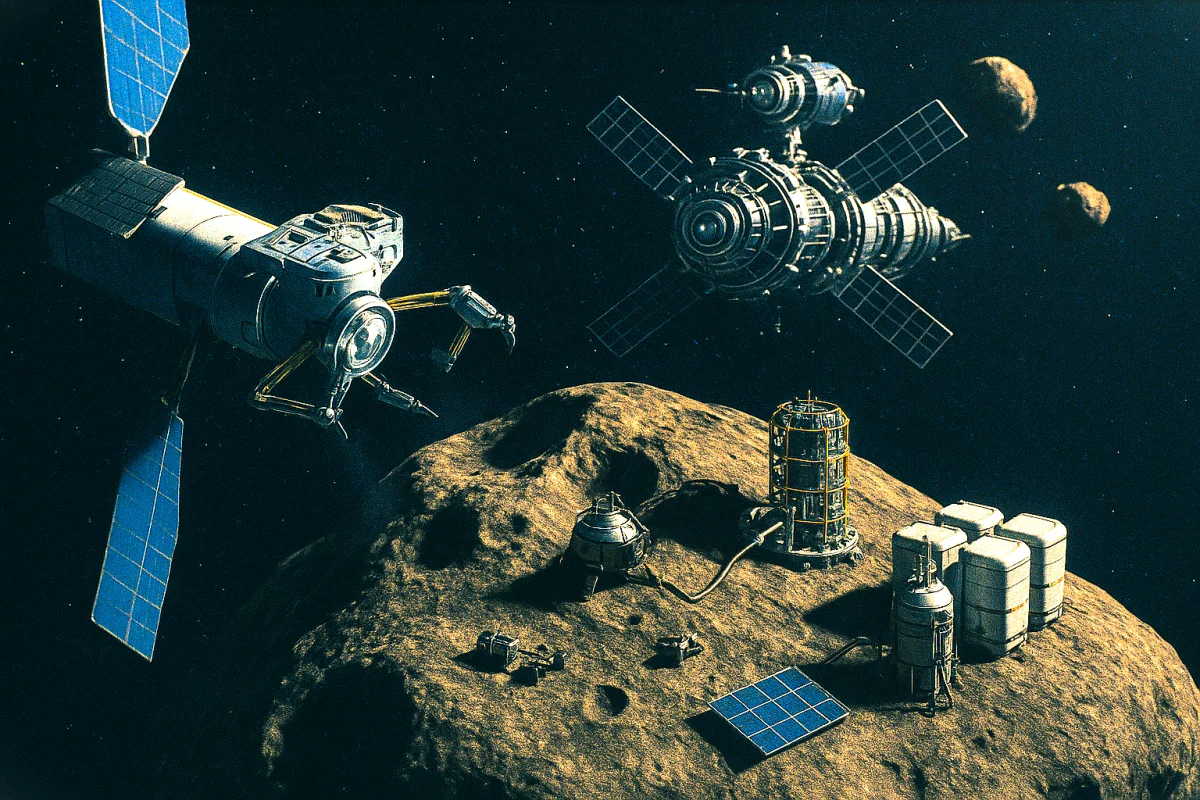Asteroid Mining — The Resource Economy of the Future
Human history has always been tied to the extraction of resources — coal, oil, natural gas, and metals. Yet Earth’s resources are finite, while global demand continues to rise. That is why scientists and engineers are increasingly exploring asteroid mining as a strategic alternative for the future. This could mark a new stage in economic development, ensuring not only resource security but also the creation of an entirely new industry.

Why Asteroids?
Asteroids are small celestial bodies scattered throughout the solar system, rich in metals and rare minerals. They may contain valuable elements such as platinum, nickel, cobalt, and rare earth metals. Some asteroids also hold water ice, which can be converted into hydrogen and oxygen — essential for both rocket fuel and sustaining life in space.
Technological Pathways
Asteroid mining requires advanced, innovative technology. Several approaches have already been proposed:
- Robotic missions — spacecraft equipped with robotic arms could collect material directly from the asteroid’s surface;
- In-situ processing — refining resources directly on the asteroid before transporting them to Earth or orbital stations;
- Water extraction — using ice for fuel production, significantly lowering the cost of long-distance space travel;
- Asteroid relocation — moving smaller asteroids into stable orbits where mining would be easier and safer.
These technologies are still in development, but many private companies and space agencies are already heavily investing in research.
Economic Benefits
If asteroid mining becomes a reality, the economic potential is enormous:
- Rare metals could become far less scarce on Earth, reducing global shortages;
- New industries would emerge — orbital construction, fuel production in space, and advanced technology exports;
- Ultimately, tapping into space resources could reduce environmental damage on Earth and ease the strain on terrestrial mining.
Challenges and Risks
The road ahead is far from simple. Key obstacles include:
- High costs — space missions remain extremely expensive;
- Legal uncertainties — who owns the asteroids, and how will profits be distributed?
- Technological complexity — asteroid mining demands entirely new engineering standards;
- Environmental risks — poorly planned missions could worsen the problem of orbital debris.
Future Outlook
Asteroid mining may become the next “gold rush.” Just as the discovery of new continents reshaped the world economy, so too could asteroid resources spark a new economic era. The greatest hurdles will be technological and legal, but humanity already seems destined to pursue this path — sooner or later.
Conclusion
Asteroid mining is no longer just science fiction — it is a real possibility. If humanity can overcome the obstacles, we could unlock unlimited resources, create new industries, and elevate the global economy to an entirely new level. Ultimately, this could be one of the keys to our long-term survival as a civilization.
What do you think — will asteroid mining spark an economic revolution, or remain a risky experiment?
✍ Article Author
- Registered: 26 July 2025, 15:34




 Silent Cat 🐾
Silent Cat 🐾